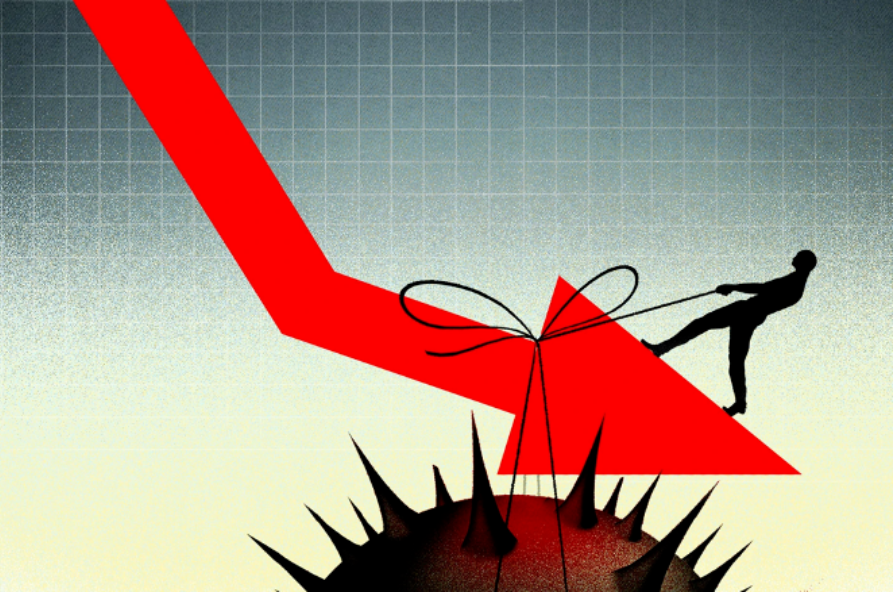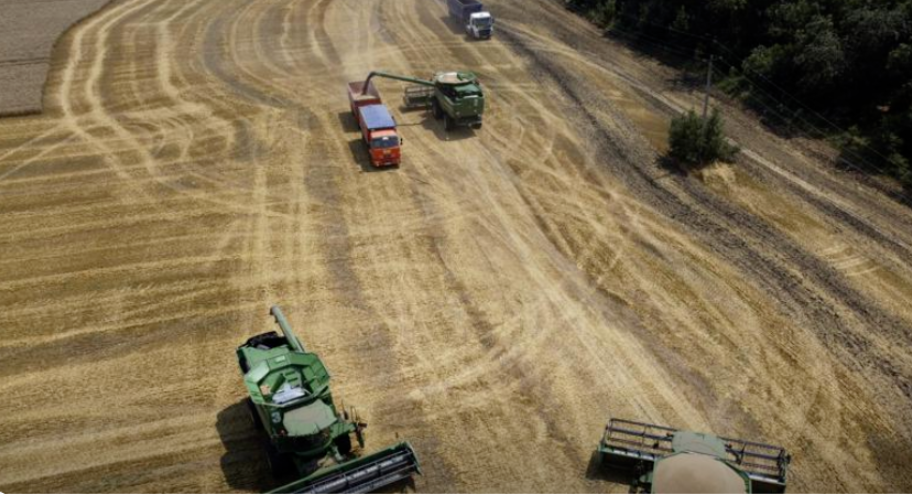受新冠疫情反弹和俄乌冲突及西方对俄制裁及等因素影响,世界经济形势复杂严峻。通货膨胀加剧,贸易和供应链受到冲击,能源、粮食、化肥等大宗商品供应出现短缺和涨价,发展中国家面临债务危机风险,世界五分之一人口可能陷入贫困,使世界经济复苏面临严峻挑战。2022年中国积极应对各种不利因素,经济开局好于预期,同时在加快构建全国统一大市场步伐。
一、受疫情反弹、俄乌冲突及西方国家对俄制裁等因素影响,全球经济发展放缓。世界银行将今年全球经济增长预期从4.1%下调至3.2%,国际货币基金组织预测今年世界经济增速跌至3.6%,发达经济体今年增长预期下跌至 3%。
The rapid spread of the Omicron variant indicates that the pandemic will likely continue to disrupt economic activity in the near term. In addition, a notable deceleration in major economies—including the United States and China—will weigh on external demand in emerging and developing economies. At a time when governments in many developing economies lack the policy space to support activity if needed, new COVID-19 outbreaks, persistent supply-chain bottlenecks and inflationary pressures, and elevated financial vulnerabilities in large swaths of the world could increase the risk of a hard landing.
(January 11, 2022, The World Bank, Global Growth to Slow through 2023, Adding to Risk of “Hard Landing” in Developing Economies)
The war against Ukraine and sanctions on Russia are hitting economies around the globe, with emerging market and developing countries in the Europe and Central Asia region expected to bear the brunt, says the World Bank’s latest Economic Update for the region. The war has added to mounting concerns of a sharp global slowdown, surging inflation and debt, and a spike in poverty levels. The economic impact has reverberated through multiple channels, including commodity and financial markets, trade and migration links and adverse impact on confidence. The war-triggered spike in global oil prices also serves to underscore the need for energy security by boosting energy supply from renewable sources and stepping up the design and implementation of large-scale energy efficiency measures.
(April 10, 2022, The World Bank, Russian Invasion to Shrink Ukraine Economy by 45 Percent this Year)
The IMF cut its global growth projections for 2022 and 2023 on Tuesday, saying the economic impact from Russia’s invasion of Ukraine will “propagate far and wide, adding to price pressures and exacerbating significant policy challenges.” Meanwhile, the World Bank lowered its global growth forecast for 2022 by nearly a full percentage point, from 4.1% to 3.2%, citing the pressure that Russia’s invasion of Ukraine has placed on the global economy. The shock waves from the conflict will continue to reverberate around the globe with both the World Bank and IMF lowering their global growth forecasts.
(April 21, 2022, CNBC, From soaring food prices to social unrest, the fallout from the Russia-Ukraine war could be immense)

(图片来源:Foreign Policy)
二、西方国家通胀形势持续发酵,2022年3月美国CPI达8.5%,创40年来新高。俄乌冲突和对俄制裁放大了欧洲乃至全球经济发展的风险和弱点,增长乏力持续显现。日本随着能源价格飙升的影响,4月份东京食品消费价格自1992年12月以来最快的速度增长。
The U.S. economy unexpectedly shrank at a 1.4 percent annualized rate in the first three months of 2022 after more than a year of rapid growth, according to a Bureau of Economic Analysis report released last Thursday. The new data is fueling concerns about a recession in the future amid steady inflationary pressures and uncertainty over the war in Ukraine. The slowdown — the first since the covid-19 recession in April 2020 — marks a reversal from the torrid pace that followed intense fiscal and monetary stimulus in the wake of the pandemic. Last year, for example, the U.S. economy grew by 5.7 percent, the fastest full-year clip since 1984. One of the economy’s biggest pressure points is inflation. Prices have risen 8.5 percent in the last year, posing the defining challenge for the Biden administration and the Federal Reserve.
(April 28, 2022, The Washington Post, Economy shrinks 1.4% in first 3 months of year, raising recession fear by Abha Bhattarai)
As for Europe, blowback from economic slowdowns in China and the US would have threatened its growth even without the war in Ukraine. But the war has greatly amplified Europe’s risks and vulnerabilities. Growth is already weak. Clearly, emerging markets and poorer developing economies will suffer mightily in the event of a global recession. Even energy and food-exporting countries, which until now have benefited economically from the war because of high prices, would probably have problems.
(April 28, 2022, The Guardian, Risk of recession in Europe, US and China is rising by the day by Kenneth Rogoff )
The cost of living in Tokyo rose at the fastest pace in almost three decades in April as the impact of soaring energy prices became clearer, an outcome that complicates the Bank of Japan’s messaging on inflation and the need for continued stimulus. Consumer prices excluding fresh food in the capital climbed 1.9% from a year ago, the internal affairs ministry said Friday. Barring the impact of sales tax hikes in 1997 and 2014, it marked the fastest pace of gains since December 1992.
(May 6, 2022, The Japan Times, Fastest Tokyo inflation in decades complicates BOJ’s messaging)

(图片来源:AP News)
三、发展中国家遭遇经济发展问题,六成低收入国家陷入债务危机,17亿人陷入贫困;随着通货膨胀的上升,发展中国家面临向债权人偿还的1万亿美元债务负担的难题。
Rapidly rising prices are creating new challenges for Latin American countries eager to move past the pandemic and get their economies back on track. While high inflation is often the norm across much of the region, the current bout is particularly worrisome as it could extend the economic pain from two years of lockdowns and curtailed activity, analysts said. According to estimates from the International Monetary Fund, the consequences of the Russia-Ukraine conflict will mean that “for every 10-point increase in the international price of oil, there will be an equivalent increase of 0.2 percent in inflation in these (Latin American) countries, while the same 10 points in the case of food would have an impact five times higher on inflation”.
(May 9, 2022, China Daily, Inflation hinders Latin America's recovery)
With inflation on the rise and developing countries already weighed down by a $1 trillion debt burden to pay back to creditors, the UN body decried the inadequate financial measures already taken to help them withstand exchange rate instability, rising interest rates and soaring food and fuel prices. The Ukraine crisis risks tipping up to 1.7 billion people — over one-fifth of humanity — into poverty, destitution and hunger.
(March 24, 2022, UN News, Ukraine war fueling global economic downturn as growth projections slide/ April, 13 2022, UN News, Ukraine war unleashing a 'perfect storm' of crises, warns UN chief)

(图片来源:CGTN)
四、2022年4月10日中国发布《关于加快建设全国统一大市场的意见》对加快建设统一大市场进行部署,将有助于让市场发挥决定作用,更好地应对复杂国际环境和疫情带来的巨大不确定性。中国经济韧性强、潜力足、回旋余地广、长期向好的基本面不会改变。
China unveiled guidelines for accelerating the building of a unified national market, envisioning breaking local protection and market fragmentation and unblocking key sticking points that weigh on economic circulation, as part of a wide-ranging push for an effectively regulated, fairly competitive and fully open market across the country. The far-reaching ordinance encompassing energy, technology, property rights protection and market regulation is intended to address some persistent problems in the country's reformist shift toward being market-oriented, experts said.
(Apr 10, 2022, Global Times, China to build unified national market to tackle persistent issues, enhance economic security)
China’s economy got off to a steady and robust start in 2022 in the face of global challenges and a resurgence of COVID-19 cases. Some experts have given their interpretations of China’s economic performance. The economy grew by 4.8 percent year on year in the first quarter of this year despite resurgences of the epidemic raging across the country. “We see China capable of boosting the economy because it has ample policy space,” IMF Managing Director Kristalina Georgieva told a virtual press conference during the 2022 Spring Meetings of the IMF and the World Bank.
(May 5, 2022, Xinhua, Experts interpret China's stable economic performance amid pandemic)
编辑:蒋绍澄 核稿:国佳 张立荣

